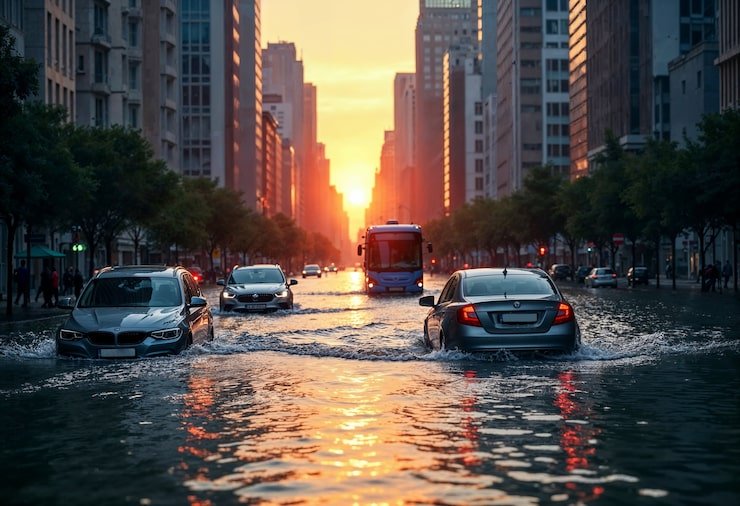World’s Top Court Declares States Must Act on Climate or Face Reparations
In a landmark ruling, the World’s Top Court, the International Court of Justice (ICJ), has affirmed that countries have a legal responsibility to combat climate change under international law. The advisory opinion—though not binding—warns that failure to act could result in climate reparations for affected nations.
ICJ Labels Climate Change an Existential Threat
The International Court of Justice (ICJ), located in The Hague, has described climate change as an “urgent and existential threat” to humanity. The court concluded that states are obligated to prevent environmental damage caused by greenhouse gas emissions. The court said that when countries don’t do this, they are breaking international law and committing a “wrongful act.” This means that they may have to pay back money, make up for damages, or do other things to make things right.
Delivering the opinion, ICJ President Yuji Iwasawa emphasized that these obligations apply especially in situations where a clear causal link exists between the environmental harm and the actions of the state in question.
Small Island Nations Celebrate Legal Victory
Vanuatu, a Pacific island nation that is at risk from rising sea levels, led the case. Ralph Regenvanu, Vanuatu’s Climate Minister, said the decision was stronger than he had thought it would be. He said outside the court, “Now we can tell the world’s biggest polluters that they have to help us.”
Historic Moment in Climate Justice
This ruling represents one of the most significant climate-related opinions ever issued by the World’s Top Court. It answers two major legal questions:
- What must nations do under international law to reduce environmental harm from emissions?
- What are the consequences if they don’t?
The judges clarified that environmental degradation can violate human rights, including the right to life. They also reinforced that climate obligations apply not only to future generations but also to today’s populations.
Global Reactions and Future Implications
Lawyers say that this decision could change the way courts around the world handle climate lawsuits. Even though the ICJ’s opinion isn’t legally binding, it has a lot of moral and legal weight.
David Boyd, who used to be the UN’s Special Rapporteur, said the decision was a “catalyst for accountability.” Johan Rockström, a well-known climate scientist, said that the decision makes it illegal for all countries to let greenhouse gases escape.
The movement began with Pacific Island students advocating for accountability. Now, after six years, their efforts have paid off with a tool that can pressure polluting nations into action.
“This is just the beginning,” said Vishal Prasad, a leader of the campaign. “The ICJ has handed us the power to demand justice.”











